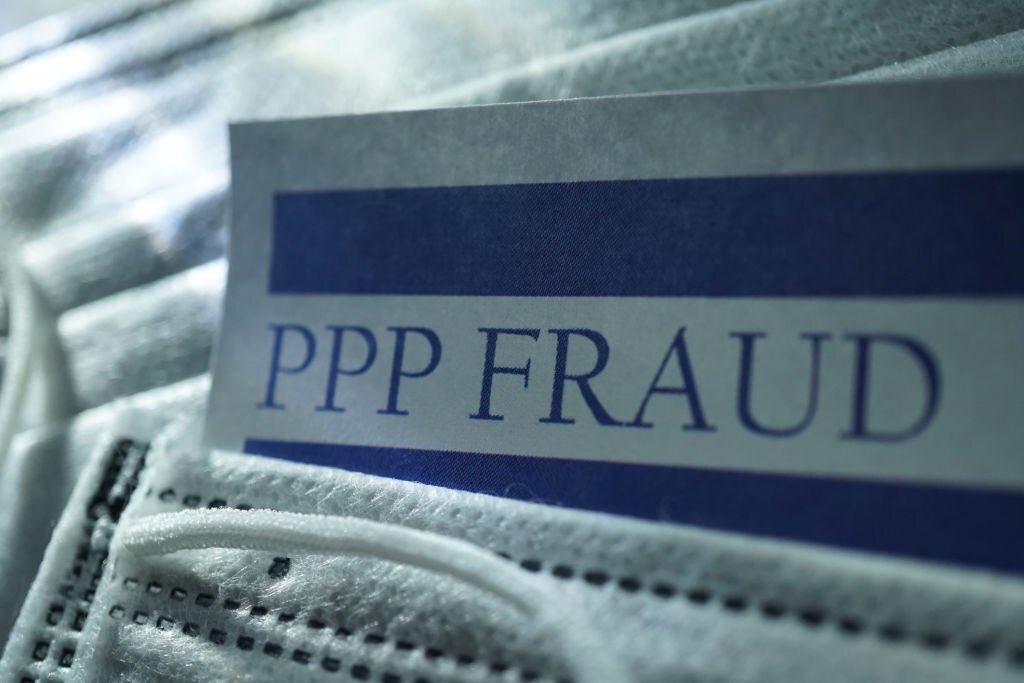Five current or former IRS employees were charged with schemes to defraud the Paycheck Protection Program (PPP) and Economic Injury Disaster Loan (EIDL) Program, federal stimulus funding authorized as part of the Coronavirus Aid, Relief, and Economic Security (CARES) Act, the Justice Department said on Oct. 4.
“The IRS employees charged in these cases allegedly abused the trust placed in them by the public,” said Assistant Attorney General Kenneth A. Polite Jr. of the Justice Department’s Criminal Division. “The Criminal Division is committed to safeguarding that public trust and protecting pandemic relief programs for the American people.”
“This matter demonstrates the brazenness with which bad actors have taken advantage of federal programs meant to help those who suffered most from the COVID-19 pandemic,” said Kevin Chambers, director for COVID-19 Fraud Enforcement. “The Justice Department will continue to work hard to root out PPP and EIDL program fraud, including that committed by government employees.”
According to court documents, the five defendants allegedly obtained funds under the PPP and EIDL programs by submitting false and fraudulent loan applications that collectively sought more than $1 million. They then used the loan funds for purposes not authorized by the PPP or EIDL program, but instead for cars, luxury goods, and personal travel, including trips to Las Vegas.
“These individuals—acting out of pure greed—abused their positions by taking government funds meant for citizens and businesses who desperately needed it,” said U.S. Attorney Kevin G. Ritz for the Western District of Tennessee. “I thank our law enforcement partners for rooting out this fraud. Our office will not hesitate to pursue and charge individuals who steal from our nation’s taxpayers.”
“The Treasury Inspector General for Tax Administration’s (TIGTA) mission includes investigating allegations of criminal violations committed by Internal Revenue Service employees,” said Treasury Inspector General for Tax Administration J. Russell George. “We will continue to aggressively pursue IRS employees who breach the public trust, safeguarding the integrity of the IRS.”
“It is especially egregious when individuals that hold positions of public trust engage in criminal activity,” said Inspector General Hannibal “Mike” Ware of the Small Business Administration, Office of Inspector General (SBA-OIG). “OIG is a ready partner in safeguarding the integrity of SBA’s programs and in bringing wrongdoers to justice.”
The five individuals charged are:
Brian Saulsberry, 46, of Memphis, TN, is charged with two counts of wire fraud and two counts of money laundering. Saulsberry was employed by the IRS as a program evaluation and risk analyst in the Human Capital Office. According to the indictment, Saulsberry submitted four fraudulent EIDL program applications, seeking at least $501,400 in EIDL program loans and obtaining $171,400 in loan funds. Saulsberry allegedly spent a portion of the funds on a Mercedes-Benz and deposited additional funds into a personal investment account.
Courtney Quinshe Westmoreland, 38, of Cordova, TN, is charged with three counts of wire fraud. Westmoreland was employed by the IRS as a contact representative in the Wage and Investment Service Centers Department. According to the indictment, Westmoreland submitted multiple fraudulent PPP and EIDL program applications on behalf of a purported apparel business, for which she sought at least $32,500 in loans and obtained $11,500 in loan funds. Westmoreland allegedly used these funds for personal services, including manicures and massages, and to purchase luxury clothing. In addition, while employed full-time by the IRS, Westmoreland allegedly submitted fraudulent applications for unemployment insurance benefits to the Tennessee Department of Labor, in which she falsely claimed that she was not employed by the federal government. According to court documents, Westmoreland fraudulently obtained $16,050 in unemployment insurance benefits.
Fatina Hewitt, 35, of Olive Branch, MS, is charged with one count of wire fraud. Hewitt was employed by the IRS as a management and program assistant in Information Technology. According to the information, Hewitt submitted multiple fraudulent EIDL program applications on behalf of a purported fashion business, seeking $338,900 in EIDL program loans and obtaining $28,900 in loan funds. Court documents allege that Hewitt spent the loan funds on Gucci clothing and a trip to Las Vegas. On Oct. 4, 2022, Hewitt pleaded guilty to one count of wire fraud.
Roderick DeMarco White II, 27, of Memphis, is charged with one count of wire fraud. White was employed by the IRS as a contact representative in the Wage and Investment Service Centers Department. According to the information, White submitted four fraudulent PPP and EIDL program applications on behalf of a purported apparel business, seeking $113,311 in PPP and EIDL program loans and obtaining $66,666 in loan funds. White allegedly spent the loan funds on personal items, including a Gucci satchel. On Aug. 25, 2022, White pleaded guilty to one count of wire fraud.
Tina Humes, 56, of Memphis, is charged with one count of wire fraud. Humes was employed by the IRS as a lead management and program assistant in the Human Capital Office. According to the information, Humes submitted four fraudulent PPP and EIDL program applications, seeking $133,812 in loans and obtaining $123,612 in loan funds. Humes allegedly spent the funds on jewelry and trips to Las Vegas. On July 27, 2022, Humes pleaded guilty to one count of wire fraud.
Each count of wire fraud carries a maximum penalty of 20 years in prison, and each count of money laundering carries a maximum penalty of 10 years in prison. A federal district court judge will determine any sentence after considering the U.S. sentencing guidelines and other statutory factors.
Thanks for reading CPA Practice Advisor!
Subscribe Already registered? Log In
Need more information? Read the FAQs




